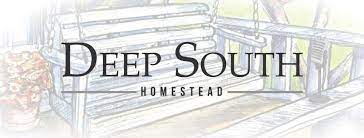
Garden advice.
-
Garden advice.
Posted by TCam on April 26, 2023 at 1:07 amBush beans, purple pinkeye peas looking unhappy. Leaves turning yellow, not growing. New garden area amended with lime and 8-8-8. Area 9A, SE LOUISIANA. NEED SOLUTION.
TCam replied 1 year, 8 months ago 15 Members · 26 Replies -
26 Replies
-
I’ve got the same thing going on in NC under the same circumstances as you. New garden added compost and cow manure, bone meal when planted and blood meal when they reached about six inches. Only two leaves ever grew and they just seem to be withering away. Look like I don’t water them.
-
Maybe need bean/pea inoculants, usually Rhizobium bacteria. I’ve been debating adding it, since I don’t have pre-inoculated seed, and I’m planting on a brand new plot that’s just been grass – actually without clover either – for a very long time. I keep going back and forth, but hearing both of you with new plots having the same issue, I think I’m swinging back in the “use it” direction.
-
That sounds like a good choice. Please let us know how it goes if you use it. Also when I grew them in my original garden they grew like crazy. That’s why I’m thinking it’s something with the soil.
-
-
Have you tried spraying with fish emulsion to see if they need nitrogen?
-
I’ve added kelp concentrate and blood meal but no results. They’re green but are wilting and two out of 6 died. I dug them out and the root ball was just as it was when I planted them.
-
-
I’m no expert and to be honest I had a bad year with some of my cowpeas last year because of the heat. But here are my thoughts: cowpeas (purple hulls etc) love low ph soil. Liming raises the ph. I don’t know your before and after levels, but they love it at the low end, like 5 to 5.5. Seems like the worse the soil is, the happier they are.
Cowpeas and bush beans are nitrogen fixers in the soil, so you don’t have to add nitrogen if you don’t want to, though since you did, the 8-8-8 was better than adding 13-13-13. Cowpeas love warmer weather. I planted some black eyed peas about 2 weeks ago and they’re about 5-6” tall right now. If you planted yours in March or early April, it may have been too cool. I’m also in SE Louisiana. Try planting some cowpeas in a different spot. It’s warmed up and I’ll bet they do good. Try a different bush bean and just see if you have better luck with those. They like 6.0-7.0 ph. I wouldn’t add any extra fertilizer them. Hope this helps. Best of luck.
-
Thanks so much. My ph is 6.5 which I figured was good because its the same as the garden I originally grew them in and they did great. I’m growing bush beans. My cabbage carrots and beets are doing well in the same garden.
-
-
My first thoughts are:
Did you do a soil test, if so what was the results?
What was growing in that spot last year? (existing garden bed, lawn etc?) and how did it do?How was the ground prepped, for this crop?
-
When you said “lime” that was an immediate red flag. I actually use sulfur pellets for beans and peas plus dust the plants with sulfur powder as soon as I see any stress. If you catch it early enough, they may recover somewhat. Yours may not bc it sounds like they are too far gone.
-
The quick fix is raised beds and bring in known tested good soil. $$$$.. The long term fix is test your soil, and do cover crops, and learn what gardeners who produce do in your area.
Using leaves to amend your soil as compost really helps, but takes mountains of leaves, and some time.
It is good you are out there learning gardening!
I like to do 80% of what I do in tested and proven methods of gardening, 20% I experiment try new methods.
Gardening is something you will always be learning how to do.
-
All that has already been posted might be true, but also sme plants just can’t take full sun, or if they do limp along with a decent watering schedule they might not make a good crop for you. I have had a lot of plants over the years like that. Are they in full sun in this heat? Do you have some growing in partial shade that you can compare to?
I do most of my growing in wicking beds and don’t even fool around with annuals like beans. Water hyacinth is my go to food and fodder source for the homestead. However, my dad grows cowpeas, in part shade, and he waters every day with drip irrigation.
Every day.
More interesting things.
-
-
Grazon, especially with legumes and nightshades, will usually present as twisted leaves and stems. It’s ugly. It’s pretty distinctive as far as I’ve seen. David the Good has a good blog post with photos of the damage: Dealing with Grazon Contamination | The Survival Gardener
Yellowing is often lack of nitrogen, or too much nitrogen (if it’s not a watering issue). They say not to add much, if any, nitrogen to legumes because they make their own nitrogen, and fix it to the soil. That’s the benefit of legumes even if you don’t eat them. But the bacteria that helps grow the nodules on the roots that actually do the fixing needs to be there. A lot of soils have at least some. I mentioned the amendment earlier that I’m going to use, because the plot I had tilled had zero legumes growing there in who knows how long – it didn’t even have ANY clover, which if your plot had, it likely had that bacteria to grow the nodules.
And make sure you’re watering appropriately, not overwatering. I know y’all have had a lot of rain this spring (at least my family in Morgan City and Lafayette have). So that may be an issue as well. Those are really the main yellowing issues for beans and peas.
-
-
Thanks for all you advice. All responses showed your willingness to help someone. Bless you all!
-
Any chance of pictures of the leaves? Sometimes where on the leaf the yellow is, can be additional information.
-
Here’s an article with several possibilities, and probably one really good option, is contact your county extension agent. See if she, or he will come out, see the situation in person and Insitu. You already pay for them via taxes and it is their job. They should be willing to help gardeners, not just big farmers.
https://savvygardening.com/green-bean-leaves-turning-yellow/
-
Just a side note since one of the possible problems could be aphid born disease,
Remember, beans and cowpeas (purple hull peas) are legumes. They work with Bacteria (as mentioned with the suggestions of inoculants) to put nitrogen into the soil. We really shouldn’t need to fertilize with nitrogen,
indeed, having too much nitrogen (what we add + what the plants/bacteria try to add) can end up with a significant excess of nitrogen. One way nature my try to remedy this is… aphids.
They are not -the- problem, but possibly an indication or symptom of a problem, which they are trying to fix by attempting to make use of the excess (unfortunately in the process, spreading disease.)
I’m not saying this is the problem you are experiencing, as there has been no mention of aphids, but saw it as an opportunity to insert a possibly linked issue. So often we see a symptom, as a disease, going all medieval on the symptom, but leaving or even exacerbating the underlying root cause. We do this in gardens, our bodies, and even relationships sometimes.
Log in to reply.
